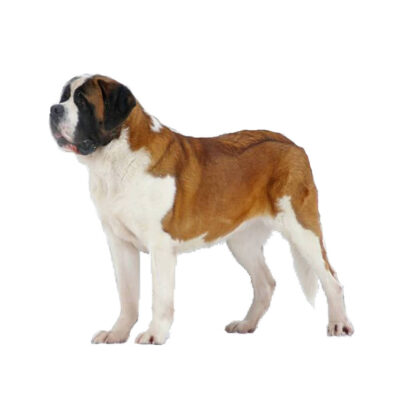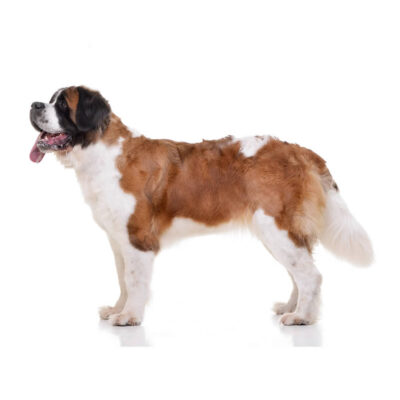Saint Bernard
Group 6: Utility
Height:
Male: 70 – 90 cm
Female: 65 – 80 cm
Energy Level: Low
Original Function: Draft, search & rescue
Lifespan: 9 years
Recommended for: Experienced handlers & families.
Note: Drool a lot.

Short haired 
Long haired
Group 6: Utility
Height:
Male: 70 – 90 cm
Female: 65 – 80 cm
Energy Level: Low
Original Function: Draft, search & rescue
Lifespan: 9 years
Recommended for: Experienced handlers & families.
Note: Drool a lot.


The St. Bernard’s name comes from Bernard de Menthon a Swiss monk, the breed was used to assist in the finding of lost travellers. Their ability to scent out stranded people in the snow was unbelievable, they often would lie down next to the person to keep them warm while another dog would go back to raise the alarm.
They are very much a gentle giant, intelligent and loyal, love children and easy to train but training should begin as a puppy to keep them manageable. They also drool and slobber a lot so you must be able to put up with this.
Appearance: There are two varieties of the St Bernard; Short-haired variety (smooth coat). Long-haired variety (Rough coat). Both varieties are of considerable size and of impressive appearance. They have a balanced, powerful, sturdy, muscular body with an impressive head and an alert facial expression.
Temperament: Friendly by nature. Temperament calm to lively; watchful.
Characteristics: Utilisation: Companion, watch and farm dog.
Colour: Orange, brindle, red/brindle, all with white patches.
Coat:
Short-haired variety: Topcoat dense, smooth, close-lying and coarse. Plenty of undercoat. Thighs have slight breeches. Tail covered with dense hair.
Long-coated variety: Topcoat plain, of medium length with plenty of undercoat. Short hair on the face and ears. Hair over the haunches and the croup usually somewhat wavy. Front legs feathered. Thighs with good breeches. Bushy tail.
Grooming: Easy coat to care for, a brush now and then is all that is needed. Bathing is a big job so only when necessary about once a month.
Exercise: regular exercise is needed to keep them fit and happy. As puppies its best to keep the exercise to short walks and not to rough play sessions until their bones are well formed and strong.
Health: The St Bernard can have quite a short lifespan, 6 years not being uncommon. The correct diet and regular health check-ups will, however, prolong their lives, in which case they can live to 10 or 11 years. Also may suffer from hip dysplasia, bloat and epilepsy. Wipe eyes regularly as they weep a lot and may get infected.